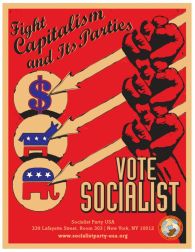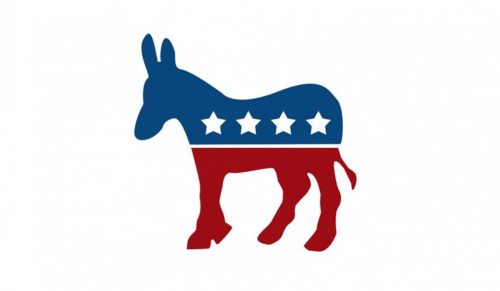There’s been a lot of interest lately in the question of whether we need a socialist party in the US. Perhaps to put this in a way people might ask it: Do we need a socialist party in our time, and, if so, what would it look like? In one sense, it’s a surprising question. We have a socialist party in the US! In fact, we have lots of them.
Category: Partisan Politics (Page 14 of 18)
Some conservatives use the phrase ‘real America’ to pick out some kind of mythical utopia of their liking. The concept itself is hardly new. In fact, it sits uncomfortably close to various fascist myths about ‘blood and soil’. But in this contemporary version of the myth, salt of the earth, conservative types supposedly suffer under the repression of the liberal, multicultural elite.
And, of course, with this myth of ‘Real America’ comes the pushback. Consider, for example, shows like Real America with Jorge Ramos, a show that fights back against the myth while, arguably, leaning in to the frame.
In a two-party system, parties become a bit of everything. This raises the question: What, exactly, is the Democratic Party? Who or what drives it? The blog 538 took a couple of cracks at this. Most notably, Nate Silver wrote about the ‘5 Corners‘ of the Democratic Party. And that’s what I’m going to look at in this post. His colleague Perry Bacon Jr., in a post on Democratic Party politicians, wrote about the party’s ‘Six Wings‘. Does Silver (or Bacon) get it right?
Let’s start with an argument. It’s a general argument about electability, but that’s no fun. Instead, I’ll use the more provocative case of Bernie Sanders. The motivating claim is that electability stands in tension with systemic change. Or, to put it differently, that not being a threat to the capitalist system is a prerequisite to attaining electability. Replace ‘Bernie Sanders’ with any other candidate and it works roughly the same. With other candidates, it’s usually so obvious it approaches triviality.
Here’s the argument.
1. Either Bernie Sanders is electable or he isn’t.
2. If Bernie Sanders is electable, his presidency isn’t a threat to capitalism.
3. If Bernie Sanders isn’t electable, his presidency isn’t a threat to capitalism.
4. Therefore, a Bernie Sanders presidency isn’t a threat to capitalism.



